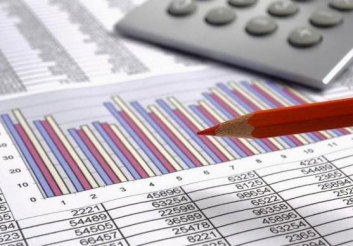Belarus’ government abandons ambitious development plans before presidential elections
 The situation has not changed
The situation has not changed

Belarus’ socio-economic development forecast for 2015 is rather modest in comparison with 2014. Just ahead of the presidential campaign, the authorities have abandoned their intentions to improve living standards. In addition, Belarus’ economy could face recession due to the situation in the Russian economy.
On October 3rd, Belarus’ socio-economic development forecast for 2015 was released to the public.
The 2014 forecast envisaged GDP growth at 3.3%, inflation at 11% (December 2014 to December 2013), a boost in exports of goods and services at 8.6%, and raising USD 4.5 billion in net foreign direct investment. As of September 2014, inflation was higher than 12% and the forecast was revised upward to 17%. Exports have not boosted, rather dwindled by 1.1%, in H1 2014 FDI was only USD 1.3 billion and GDP grew only by 1.5%. GDP growth forecast for 2015 is around 2%-2.4%, inflation at 12%, and exports growth at 4.3%. Such a forecast means that the authorities have lowered their expectations regarding Belarus’ economic growth in 2015.
As a rule, before the presidential campaigns, the authorities strive to demonstrate growth in GDP, people’s real incomes, and exports. Meanwhile, the 2015 forecast implies that the authorities are seeking to secure a stable and low economic growth rate, rather than an inflated one that would seriously weaken the national currency. The Belarusian authorities are not aiming high in terms of GDP growth. This is also due to stagnation in Russia and Ukraine as well as the world’s economic slowdown. All in all, the projected economic forecast is quite realistic.
The situation in the Russian economy could be the only threat to Belarus’ 2015 forecast. Belarus’ exports to Russia make up 42% of the total exports. In addition, USD 2.8 from USD 3.1 of Belarus’ public debt is owed to Russia. EU and US sanctions on Russia might reduce investment activity on the Russian market, and further reduce exports of investment goods produced in Belarus. Also, they might affect Russian banks and the government in terms of their ability to issue loans for the Belarusian economy. Moreover, restricted access to new technologies in the oil extraction industry might reduce oil extraction volumes, which would reduce Russia’s proceeds and have a multiplication effect on the Russian economy as a whole. Belarus is unable to influence sanctions and will be prompted to readjust her economic development forecast for 2015 if recession in Russia deepens. .
The Belarusian authorities have chosen a balanced approach to economic growth in 2015 and do not intend to pump the economy with printed money. If sanctions on Russia are stepped up, that will have a direct impact on the Belarusian economy. In addition, President Lukashenko might review the government’s plans, as he has done many times before, and recommend revising the forecast parameters upward.
Subscribe to our newsletter




Situation in Belarus
Constitutional referendum: main consequences


 Video
Video
How to count the political prisoners: are the new criteria needed?


 Video
Video
Paternalism In Decline, Belarusian Euroscepticism, And The Influence Of Russia


 Video
Video












